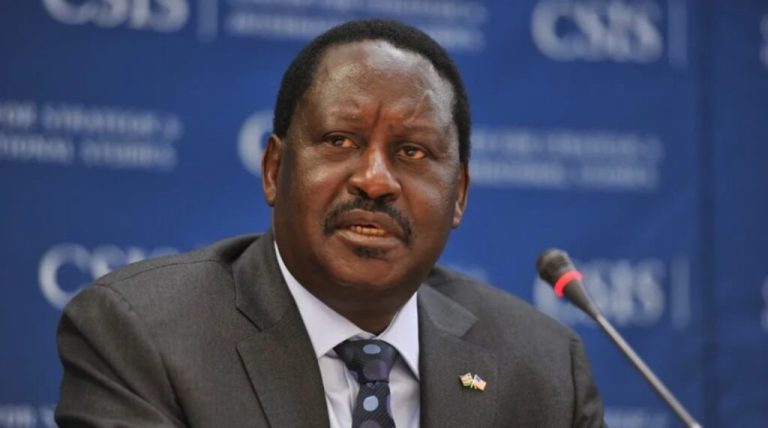Raila Amollo Odinga, widely known as Baba, has played an instrumental role in shaping the political, economic, and social fabric of Kenya. Born on January 7, 1945, in Kisumu, Raila is the son of Jaramogi Oginga Odinga, Kenya’s first Vice President and a leader of the independence movement. Raila’s political journey, which has spanned over five decades, has made him one of the most influential figures in Kenya’s history. His legacy is defined by his unwavering commitment to democracy, justice, and national unity, making him not just a political leader, but a symbol of resilience, hope, and change.
Raila’s name became synonymous with Kenya’s pursuit of democratic rights and freedoms. From challenging authoritarian regimes to advocating for constitutional reforms and the devolution of power, his leadership was pivotal in Kenya’s journey from one-party rule to a multi-party democracy. While he ran for president multiple times, Raila’s influence and impact far surpass the office he sought. His leadership reshaped Kenya’s political landscape, and his unwavering belief in a fair and just society remains his most enduring contribution to the country.
Early Life and Education
Raila Odinga’s upbringing was shaped by his father’s political legacy. Jaramogi Oginga Odinga, a leading figure in the independence movement, was known for his opposition to the British colonial government and his subsequent role in the fight for Kenya’s independence. Raila was exposed to politics from an early age, watching his father’s efforts to shape Kenya’s political future. His father’s legacy of resistance and commitment to the people’s cause left a lasting impression on Raila, instilling in him a deep sense of duty to the nation.
Raila attended Maranda High School in Kisumu, where his education laid the foundation for his future endeavors. He later traveled to the United States, where he attended Gonzaga University in Washington, pursuing a degree in Mechanical Engineering. He went on to study in Germany, where he earned a Master’s degree in engineering. Raila’s education abroad exposed him to global perspectives on governance and democracy, and it was during this period that his desire to bring meaningful change to Kenya’s political system began to take shape.
Return to Kenya: Early Political Engagement
Upon returning to Kenya in the late 1970s, Raila joined the political stage, continuing his father’s legacy. He became involved in the student activism and political movements that were challenging the Jomo Kenyatta and Daniel arap Moi regimes. Despite his father’s prominent role in the government, Raila’s opposition to Kenya’s one-party system led to multiple arrests and periods of detention.
In 1982, Raila was implicated in a failed coup attempt against Moi’s government, though he always denied involvement. He was later imprisoned under harsh conditions without trial, a period that tested his resilience and commitment to his political ideals. After his release, Raila continued to challenge the authoritarian rule, becoming one of the country’s foremost leaders in the fight for democracy.
The Struggle for Democracy and Political Reforms
Raila’s political career flourished in the 1990s, when Kenya was undergoing a fundamental shift toward multi-party democracy. Under the oppressive Moi regime, Kenya had been a one-party state, with the ruling Kenya African National Union (KANU) tightly controlling political power. However, the growing wave of democratization across Africa pushed Kenya toward political reform. Raila became one of the leading figures advocating for the legalization of political opposition and the creation of a multi-party system.
In 1992, Raila Odinga, representing the newly formed National Development Party (NDP), contested the parliamentary elections, winning the Lang’ata constituency seat. This victory marked the beginning of his official political journey, and his subsequent campaigns for president in 1997 and 2002 were pivotal in raising the stakes for political change in Kenya.
Raila’s efforts were also key in pushing for the 2005 referendum on constitutional reform, where his leadership against the “Bomas Draft” Constitution positioned him as a key figure in Kenya’s democratic trajectory. He became a symbol of the nation’s aspirations for greater transparency, accountability, and fairness in governance.
The 2007 Election and Post-Election Crisis
Raila’s 2007 presidential bid was one of the most intense political battles in Kenya’s history. After the election results were contested, widespread violence broke out, resulting in over 1,000 deaths and displacing thousands of others. Raila’s refusal to accept the election results was met with violent clashes between his supporters and those of President Mwai Kibaki. This violent aftermath led to the 2008 peace agreement brokered by Kofi Annan and the formation of a power-sharing government.
As a result, Raila was appointed Prime Minister in the Grand Coalition Government, where he played a crucial role in leading the country through a period of instability. His leadership in navigating the post-election crisis, facilitating peace, and fostering national dialogue became a significant chapter in Kenya’s history. This period saw Raila further solidifying his position as a statesman committed to peace and reconciliation.
Raila Odinga and the Constitution of 2010
In 2010, Raila played a key role in Kenya’s adoption of a new Constitution, which significantly expanded the democratic space in the country. The 2010 Constitution introduced key reforms in the areas of devolution, judicial independence, and human rights, making Kenya one of the most progressive countries in Africa in terms of governance. Raila’s instrumental role in pushing for these reforms earned him recognition as one of Kenya’s greatest political reformers.
Presidential Bids and Continued Influence
Despite his failure to secure the presidency in 2007, 2013, 2017, and 2022, Raila’s political influence continued to grow. In each election, his support base remained strong, especially among Kenya’s marginalized groups and those advocating for political change. His campaigns focused on issues like devolution, electoral justice, and economic equality, challenging the entrenched political elite.
In the 2022 election, Raila, running as the Azimio la Umoja coalition’s candidate, once again sought the presidency. Although he did not win, his efforts in shaping the national discourse and advocating for reforms in electoral processes and governance cemented his legacy as one of Kenya’s foremost political leaders.
Raila’s Legacy: The “People’s President”
Raila Odinga’s legacy is built on his commitment to democracy, economic justice, and social inclusion. His work has shaped modern Kenyan political culture, especially through his relentless fight for free and fair elections and his advocacy for marginalized communities. Raila’s legacy is also marked by his emphasis on national unity, as he repeatedly sought to bring together Kenya’s diverse communities despite political divisions.
Though he never became President, Raila remains one of Kenya’s most influential figures, often referred to as the “People’s President.” His advocacy for the empowerment of women, youth, and minorities has changed Kenya’s political landscape, encouraging greater participation and representation for all Kenyans. His leadership continues to inspire the nation to strive for a more just, democratic, and inclusive future.
Personal Life and Family
Raila Odinga’s family life is just as significant as his political career. His father’s legacy shaped his political path, and his children—Willy Odinga, Raila Jr., and Ruth Odinga—are continuing the family’s commitment to public service and leadership. Raila’s wife, Ida Odinga, has also played a crucial role in supporting his political initiatives and promoting women’s empowerment in Kenya.
Raila’s personal journey from the son of a freedom fighter to a political titan is one of perseverance and determination. His family, rooted in both public service and activism, will continue to play a key role in Kenya’s political future.
Conclusion: Raila Odinga’s Enduring Impact
Raila Odinga’s death marks the end of a significant chapter in Kenya’s history. Yet, his influence will live on in the policies he championed, the democratic principles he fought for, and the people he inspired. Raila’s journey through struggle, leadership, and reform is a legacy that will continue to shape Kenya’s future. As the nation moves forward, the ideals of justice, unity, and fairness that Raila embodied will serve as a foundation for future generations of leaders.



















